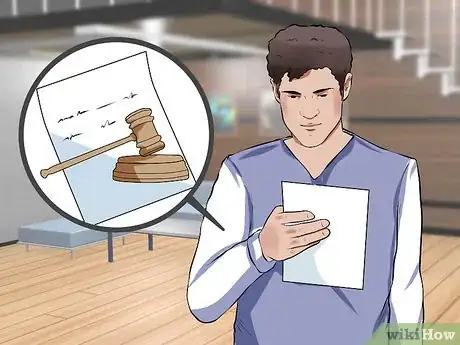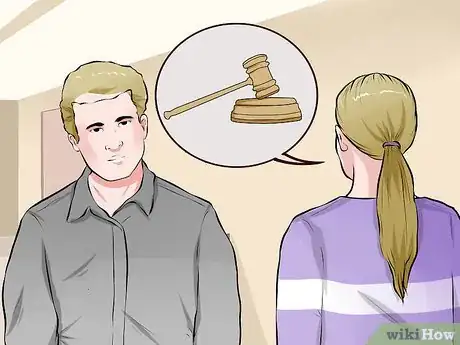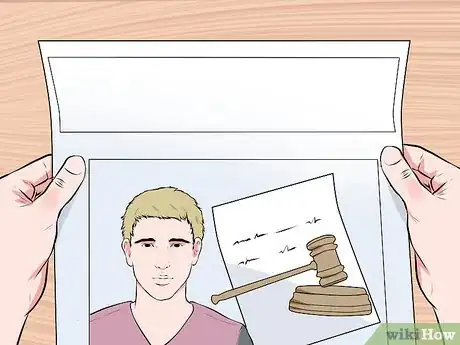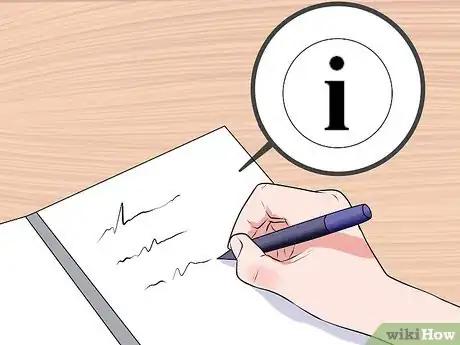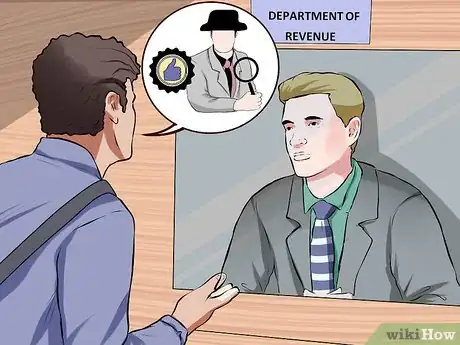X
This article was co-authored by Clinton M. Sandvick, JD, PhD. Clinton M. Sandvick worked as a civil litigator in California for over 7 years. He received his JD from the University of Wisconsin-Madison in 1998 and his PhD in American History from the University of Oregon in 2013.
This article has been viewed 52,983 times.
Finding missing heirs and beneficiaries is much like finding anyone else, except that you may have the advantage of expecting that the person will usually want to be found. Because of this you can leave a trail behind what you do and hope that your missing heir finds you. There is a variety of steps you can take to try to locate someone.
Steps
Method 1
Method 1 of 3:
Determining if an Heir Exists
-
1Identify the will. For the vast majority of cases, identifying heirs is not very interesting or involved. Read the will, identify the spouse and/or children, and distribute the property. However, when a will cannot be found, or if the heirs are not clear, then the matter becomes more interesting (and usually more difficult). Wills are not filed with any court or state agency. Sometimes the person will leave a will with the attorney who helped draft it. But it is entirely possible that a person could have written a will, without telling anyone, and tucked it between the pages of his or her favorite book in the book case. The first step, in such a case, is simply to find if a will exists and identify it as such.
- If, after a diligent effort, no will can be located, then any interested party can apply to the probate court for an order that no will exists. Usually this will be a family member. If that happens, then the estate will be distributed according to state law, as though no will ever existed.
- State probate law generally describes certain percentages of the estate that are to go to the spouse and children. If no spouse or children are alive at the time, then the law will extend to parents or siblings. The example of an estate going to a long-lost great nephew twice removed rarely happens, except in the movies.
-
2Work with the executor of the estate. In most states, distribution of the property is managed by someone called an executor. The executor is usually a friend or relative of the deceased, or could be an attorney who gets appointed. If you are looking for heirs to the estate, you will need to meet with the executor to get information about the will.[1]Advertisement
-
3Examine the will. If you are in a position to read the will, examine it carefully. If the will identifies heirs by name, then your search will be easier. However, if the will uses vague language, such as, “I leave the remainder of my estate to any identifiable heirs,” of if there is no will, then your search will be more complicated. You will first need to determine whether any such heirs exist, and then try to find them.[2]
-
4Meet with an attorney who is familiar with estate law. Estate or probate law is what directs the distribution of assets from a decedent’s estate. You will probably need to meet with an attorney who practices this type of law to understand the requirements of your state.[3]
- Estate laws differ from one state to another. The law that controls is usually the law of the state where the decedent was last living when he or she passed away.
-
5Prepare to perform a “due diligence” search. The law will inform you about the need to search for missing heirs. If the will is vaguely written or if an heir cannot be located or identified, state law generally requires the estate to perform a “due diligence” search. This is at least a minimally reasonable effort to try to find missing heirs.[4]
- A due diligence search usually requires advertising in a local newspaper for a number of weeks about the effort to locate heirs to the estate, as well as making direct contact with known family members.
Advertisement
Method 2
Method 2 of 3:
Investigating on Your Own
-
1Gather as much information as you know. In some cases, you may wish to go beyond a due diligence search and continue trying to find a missing heir. Perhaps the inheritance is very valuable, or perhaps you may stand to earn a commission if the person is found. Whatever the reason, every case is going to have a different level of difficulty, depending on how much information you know at the start. The more bits of information that you can collect at the beginning, the easier the rest of your search is going to be. Some examples of helpful, or necessary, information include the following items:[5] [6]
- Vital records (birth certificate, death certificate, marriage license)
- Obituaries of family members
- Real estate and cemetery records
- Credit records
- Employment records
- Education records
- Family correspondence
-
2Contact other relatives of the deceased person. The place to begin your search is with known family members of the decedent. Ask for any leads they may have for the missing heir. Try to jog their memory with direct questions:[7]
- ”When was the last time you saw John Doe (the missing person)?”
- ”Where was John Doe living when you last heard from him?”
- ”Do you know what kind of work John Doe was doing?”
- ”Do you know if John Doe ... got married? ... was attending college? ... had any children?”
-
3Contact friends of the deceased person. After you exhaust the known relatives, try meeting with friends and colleagues of the decedent. Their memory of a missing heir is likely to be even less than that of family members, but it is always worth asking.[8]
-
4Keep a notebook or search journal. As you meet with people, you should keep a written record of your efforts. Keep notes, either by handwriting in a notebook or keeping a spreadsheet on a computer, of everyone you meet, the date and time of your conversation, and the list of questions and answers. You will be able to use this record as proof of your search efforts when you report back to the executor of the estate or if you need to prove to a court that you have conducted a thorough search.[9]
-
5Search social media and other online sources. With the widespread access to social media, locating individuals has become easier in recent years. Use such tools as Google, Facebook, or Twitter to search for the missing heir. There are several things to keep in mind when searching for someone online:[10]
- Use a very wide range of spellings and name combinations.
- Try including a middle initial, or leaving it out.
- Use a variety of spellings for the last name, if it is commonly misspelled.
- Try searching under nicknames, if you know that he or she used one.
-
6Post information online. It is sometimes easier to put out notices that you are looking for a person, and then let that person come to you. If you are trying to find a missing heir to an inheritance, post information about the inheritance and include a way for anyone with information to reply to you.[11]
- Create a Facebook page, identifying the name of the person you are looking for or the name of the deceased
- Send out information on Twitter or some other social media.
- Post a "Looking for..." ad on Craigslist.
Advertisement
Method 3
Method 3 of 3:
Hiring a Private Investigator or Search Agent
-
1Select a reputable heir finder or investigator. Simply searching the Internet for “missing heir” will turn up a wide array of genealogists, private investigators and “heir hunters.” Review several websites to try to find a company that appears responsible, that describes openly their search process, and that appears to be fully responsive. Select one or more to meet with initially and then select a company that you believe will conduct the kind of search you need.[12]
-
2Provide as much information as possible. The investigator’s job will be simplified and improved if you can provide useful information. If you have conducted any searching already by yourself, you may turn over your notes to help the investigator get started.
-
3Check with your state to see if such firms must be licensed. In some states, heir finders or private investigators need to be licensed. In some they do not. Check with your state’s department of revenue or secretary of state to try to find out.
- If you have found an investigator that you would like to retain, ask if the company is licensed or has any other kind of state oversight.
-
4Discuss the financial arrangement with the search agent. Before you retain anyone to perform this kind of work for you, you should have a written contract. The contract should state clearly the work that you want performed and the fee that you are going to pay. You need to specify whether the payment will be based on an hourly rate or as a percentage of the amount of the inheritance. Different companies will have different billing policies, and you may have different preferences based on the type of inheritance.
- Be clear whether you will pay an hourly rate or a percentage of the value of the inheritance.
- In some states, there are limitations on how much of a percentage an heir finder can charge.[13]
Advertisement
References
- ↑ http://info.legalzoom.com/heir-cannot-found-24219.html
- ↑ http://info.legalzoom.com/heir-cannot-found-24219.html
- ↑ http://info.legalzoom.com/heir-cannot-found-24219.html
- ↑ http://info.legalzoom.com/heir-cannot-found-24219.html
- ↑ http://www.forensicgenealogist.pro/articlepracticaltips.html
- ↑ http://www.skipease.com/search_tips/free_people_search_engine_tips.html
- ↑ http://digitalcommons.law.uga.edu/cgi/viewcontent.cgi?article=1033&context=speeches
- ↑ http://digitalcommons.law.uga.edu/cgi/viewcontent.cgi?article=1033&context=speeches
- ↑ http://www.huffingtonpost.ca/suzana-popovicmontag/estate-planning-advice_b_4383771.html
- ↑ http://digitalcommons.law.uga.edu/cgi/viewcontent.cgi?article=1033&context=speeches
- ↑ http://www.skipease.com/search_tips/free_people_search_engine_tips.html
- ↑ http://www.huffingtonpost.ca/suzana-popovicmontag/estate-planning-advice_b_4383771.html
- ↑ http://www.forensicgenealogist.pro/articlepracticaltips.html
About This Article
Advertisement
